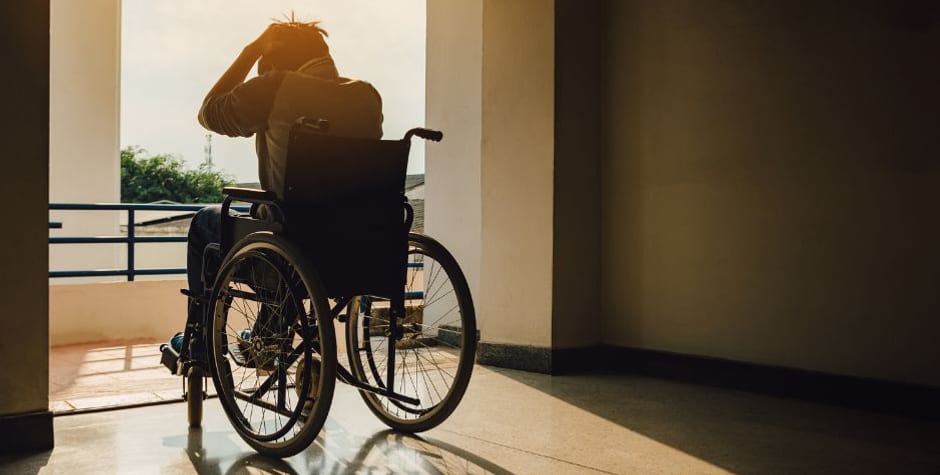Opinion piece published in Le Figaro on September 5, 2025 about a French bill legalizing a “right to assisted dying.”
“This law is like a loaded gun on our bedside table. It will put social pressure on us to disappear.” These shocking words have been repeated several times in the media by Louis Bouffard, a young writer with a motor disability. He has Duchenne muscular dystrophy, a degenerative muscle disease that is the cause of his disability and would make him eligible for assisted dying. Does this mean that the draft bill on assisted dying targets people with disabilities?
This is the question posed by the United Nations (UN) Committee on the Rights of Persons with Disabilities, which considers in a letter that the bill “would constitute a violation of France's obligation to respect, protect, and guarantee the right to life of persons with disabilities.” The Committee noted that the eligibility criteria for assisted dying indirectly overlap with the definition of disability, as they target diseases that cause disabilities, as in the case of Louis Bouffard. It also points to the risk that persons with disabilities may not be sufficiently protected against abuse of weakness.
This UN procedure comes at a time of government instability and while the parliamentary debate on end-of-life issues is still ongoing, which is unprecedented. However, the Committee on the Rights of Persons with Disabilities is not overstepping its mandate. Indeed, it is the official interpreter of the Convention on the Rights of Persons with Disabilities, which France has signed and ratified, and this Convention has “superior authority to the laws” (Article 55 of the Constitution). All French laws must therefore comply with this international framework, and this is what the Committee intends to remind France.
It is to be hoped that the government, whether reshuffled or not, will pay attention to the UN’s concerns, as they are justified and well-founded.
The lack of specific protection for persons with disabilities
Admittedly, François Bayrou's government can claim to have sought to put some safeguards in place. For example, it tabled an amendment to require doctors to seek the opinion of a psychiatrist or neurologist in cases of serious doubt about a person's mental capacity. However, the National Assembly rejected this amendment. MPs reduced the “collegial procedure” to a simple consultation with a second doctor and a medical assistant or nursing aide.
The government also supported the provisions that are most worrying for people with disabilities. It wanted people under guardianship or curatorship to be able to request assistance in dying, insisting on their ability to give free and informed consent. However, this contradicts the very definition of legal protection, which benefits “any person who is unable to look after their own interests due to a medically certified impairment of their mental or physical faculties that prevents them from expressing their will” (Article 425 of the Civil Code).
The government also issued an unfavorable opinion on amendments that provided for specific and enhanced information for persons with disabilities on the care and support available to them. The National Assembly rejected these amendments. It did the same for amendments aimed at including representatives of persons with disabilities in the composition of the commission responsible for monitoring and evaluating the assisted dying system.
A euthanasia procedure that is too rapid
The Committee on the Rights of Persons with Disabilities also highlights the speed of the procedure, with a reflection period of only two days, compared to two weeks for cosmetic surgery or to withdraw from the purchase of a household appliance. It is also concerned about the offense of obstructing assisted dying, a provision that is unique in the world and incompatible with suicide prevention policy.
The final point of disagreement between the government and the UN concerns semantics. The Committee readily uses the terms “euthanasia” and “assisted suicide,” while the government uses the marketing phrase “assisted dying.” However, the Ministry of Health's website continues to define assisted dying as referring to “both euthanasia and assisted suicide.”
The intervention of the Committee on the Rights of Persons with Disabilities in the midst of the parliamentary debate gives the (next) government a chance to amend the text when it is examined by the Senate. At the very least, the bill should explicitly protect people under legal protection, those suffering from psychiatric disorders, or those with intellectual disabilities from euthanasia. Failing that, France would be in breach of its international commitments. It would also run the risk of drifting towards a new form of eugenics.
In this episode of Ligne droite (French radio), Nicolas Bauer comments on the French government's response to the Committee on the Rights of Persons with Disabilities:
SIGNATURES











